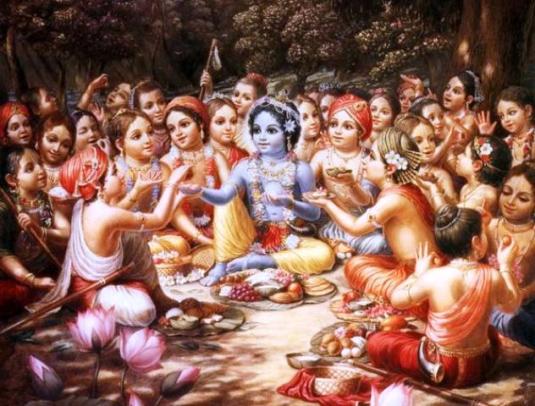Once when Srila Prabhupada saw what was being served to the devotees, lavishly prepared multi-course lunches, he told the managers that it was too opulent. He said we should eat simply during the week with rice, dhal, chapatis and a little subji and once a week on the Sunday love feasts we could be more lavish. Today with more of us becoming Health Conscious, it is good to remember the very simple devotee diet that was recommended to us so long ago.
Standard Devotee Diet
Srila Prabhupada recommended a standard diet for the devotees, and instructed that all of the temples should follow it every day. That menu follows:
BREAKFAST:
Simple farina cereal with nuts and raisins
Milk (steaming hot), or yogurt in the summertime
Chick peas (raw, soaked overnight)
Ginger root (raw)
Oranges, apples and/or bananas
LUNCH:
Rice
Chapatis
Dal made with freshly ground ginger root and freshly ground spices
Subji made with ghee, freshly ground ginger root and freshly ground spices
BEFORE TAKING REST:
Milk (steaming hot)
Bananas
For a free download of the Hare Krishna Cookbook on pdf
click on link to download pdf file to your computer The Hare KRSNA Cookbook



